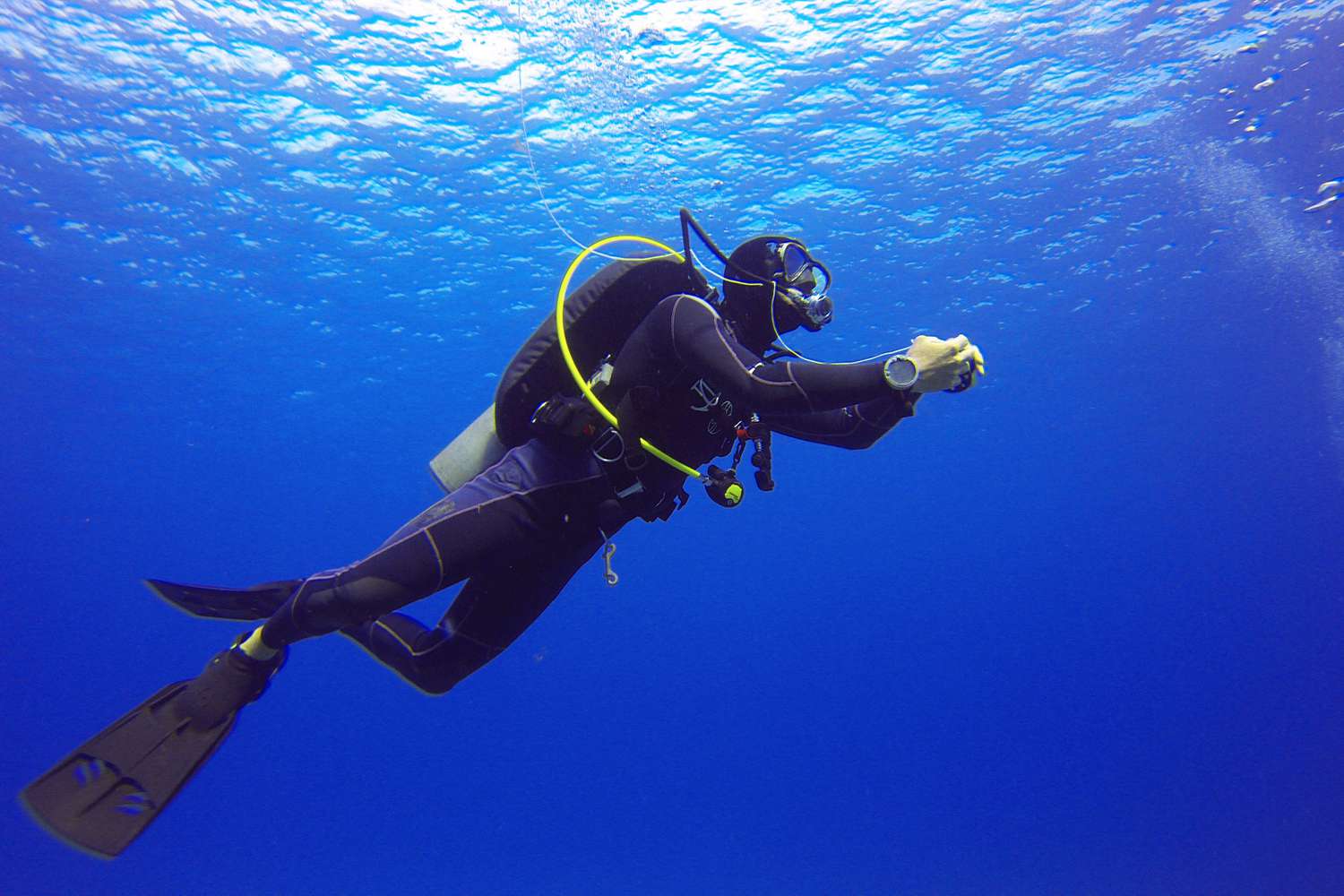
The Maldives has a reputation as one of the best diving destinations in the world – and for good reason. The unique beauty of the Maldivian underwater world is appreciated by divers the world-over due to the excellent visibility (sometimes to 50 metres), the multitude of exotic marine fauna and flora and the warm temperatures of the water (averaging around 29 degrees Celsius through the year). Some of the most exciting fauna includes manta rays, whale sharks and reef sharks. Sightings of these pelagics is never guaranteed, but the Maldives is the only place in the world with a year-round whale shark population. The gentle plankton-eating giants are the biggest fish in the ocean and can be as big as a double-decker bus!
The colourful coral reefs are bursting with marine life in volumes like no other place, with typical neighbours including angelfish, surgeonfish, napoleon wrasse, parrotfish and oriental sweetlips. Baby reef sharks are often spotted in shallow resort lagoons while more mature reef sharks including white tips and black tips are usually spotted in the drop-offs and channels. Nurse sharks, silvertips, tiger sharks and even hammerheads can also be found in Maldivian waters. It’s worth noting that there hasn’t been a shark attack in the Maldives since the late 1970s, and most injuries like this are due to diver error. Marine biologists think that part of the reason that sharks in the Maldives aren’t interested in people is partly down to the sheer volume of fish they can gorge themselves on!
Caves, overhangs and thilas add to the exciting diversity of underwater landscapesyou can explore in the Maldives, while there are also several famous wrecks which can be dived. Due to the nature of the often-strong currents in the Maldives, there are also many opportunities for drift dives.
All resorts and most cruise boats operating in the Maldives have well-equipped dive centres staffed by multilingual experienced professionals. All resorts also offer guests the opportunity to learn to dive and gain internationally recognised diving qualifications, although the facilities may vary depending on the resort’s size, location and clientele. A variety of diving courses ranging from beginners’ to experienced PADI qualifications are offered.
In terms of equipment, all diving schools provide compressors, tanks, BCDs, wetsuits, weights and weight belts in addition to a limited number of other accessories such as lamps and diving computers. However, liveaboard cruise boats usually require guests to provide their own equipment. Underwater cameras and video processing facilities are also available in some of the bigger dive schools. Some resorts and liveaboards even offer to take videos and photos of you as you dive.
If you are already a qualified diver, you can book a boat trip from your resort to dive sites around the islands throughout the year. Specialized dives (including night dives) are not daily events, but many resorts arrange these on a frequent basis.

